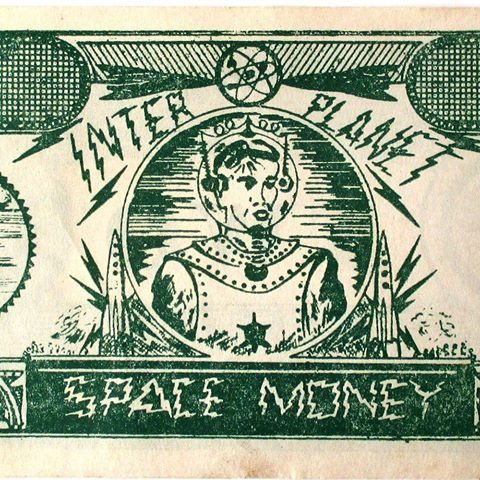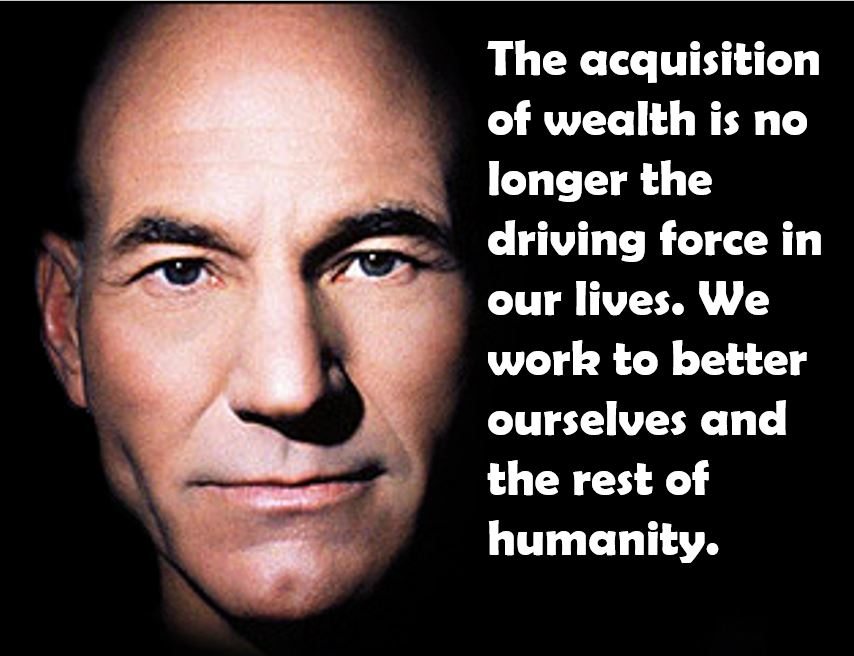
A final thought on the future from a banking perspective. So we will be colonizing Mars by 2040 according to Elon Musk. Why? Because this planet is not going to sustain the population it has emerging. When I was born there were half the number of people on Earth that there are today. Some say birth rates are slowing, as people emerge from poverty, but we are equally seeing people aging. Today, life expectancy of 80 years; tomorrow, 100 or more. Equally, we may say birth rates are slowing, but when you can design your babies without a partner involved, maybe they will rise again. These are the things we have discussed all week.
By 2035, the estimates are 8.7 billion people on Earth, up from 7 billion today. My estimate is that this will rise to 14 billion by 2065. That’s just based upon the idea of a doubling of the population every 50 years, and that may be conservative as an estimate. In other words, the planet is unsustainable if we have so many humans on Earth. So we send them into space.
Another factor is that some people believe that there will be no jobs in the future, as all work can be automated. I’m not so sure, as there will be an increasing need for space stewards, the next generation of air stewards. There will be a need for safety testing of spacecraft; developing systems and apps for the spaceships; providing services for robot repairs; entertainment and developer services for building virtual reality (VR) experiences; and more.
However, everyone has noted that there will be a problem with money in the future. So many people, not enough work. What do you do if there is a really old population and less young people? The young pay the taxes to care for the old, but this situation will turn on its head. Not just that, but the young will be finding hard to make any decent money, as there will be a challenge. The challenge will be down to who has the money.
According to Professor Yuval Noah Harari the future “is destined, if current trends continue, to be vastly unequally distributed. The new longevity and super-human qualities are likely to be the preserve of the techno super-rich, the masters of the data universe. Meanwhile, the redundancy of labour, supplanted by efficient machines, will create an enormous useless class, without economic or military purpose. In the absence of religion, overarching fictions will be required to make sense of the world. Again, if nothing in our approach changes, Harari envisages that Dataism, a universal faith in the power of algorithms, will become sacrosanct. To utopians this will look a lot like the singularity: an all-knowing, omnipresent data-processing system, which is really indistinguishable from ideas of God, to which humans will be constantly connected. To dystopians it will look like that too.”
Wow. A little bit mind-blowing all this future stuff. But if the future is vastly unequally distributed, how will the useless class survive? Maybe Star Trek again provides the answer.
Why Is There No Money in Star Trek?
Television writer Gardner Goldsmith worked on the Voyager incarnation of the show. While pitching a story outline one day about retrieving stolen money, he was told by the producer that Gene Roddenberry, creator of the original show, “stipulated before he died that there was to be no money in the Federation .” Roddenberry apparently believed that in the future, “mankind would have evolved past the need for money,” and that “humanism would strip mankind of the acquisitive tendencies it had shown throughout history, and that the use of money was a vice.”
Gene Roddenberry, creator of the original show, “stipulated before he died that there was to be no money in the Federation.”
What the creator believed, his characters propounded. We are told time and again by one character or another that there is no need for money within the Federation, or that money no longer exists, or that humanity has moved beyond its acquisitive past and now pursues only knowledge and self-improvement.
According to one blogger , the original series made no such claims until the fourth feature film in which the crew travels back in time and Captain Kirk lets it slip that they have no money in the future.
But even in later years, the Star Trek universe is not strictly moneyless. As numerous bloggers have pointed out, there are occasional references in the shows and films to things called “credits,” which sound a lot like money. There is also “latinum,” a fictional precious metal used notably by the Ferengi in Deep Space Nine, yet another incarnation of the show. Still, credits and latinum are mostly used for dealings with people outside of the Federation.
FREE ENTERPRISE
When you think about it, it is more than a bit odd that a fictional universe whose premier starship is named “The Enterprise” would be so antagonistic to actual enterprise. Then again, it isn’t the enterprising part of it that chafes; it’s the profit part. Since the Ferengi use money, they are treated with contempt, like money-changers in the temple. They are presented as living only for the love of latinum, against which all other purposes pale.
But this base caricature of business and wealth acquisition is about as realistic as a Vulcan mind meld. All of us want to better our lives. As long as we do so while respecting others’ rights, this is not only acceptable but downright noble. And there is no reason to believe that humans will abandon our “acquisitive” natures, even if it were desirable to do so—which it is not.
In reality, the pursuit of profit drives productivity. In a free market, where private property rights are respected, the only way to get rich is to serve others, to satisfy their wants and needs. Wealth acquisition requires wealth creation. Thieves and aggressors are punished, and the rest of us get on with the business of living. Even in a mixed economy, this remains true to the extent that property rights are respected. When and where they are circumvented through legislative decrees, the door is opened to the economy of pull. In a more completely socialized economy, like the Soviet Union of old, pull is the only way to get ahead, and corruption becomes the norm.
REPLICATORS NOTWITHSTANDING…
But could technology make acquisitiveness obsolete? Put another way: Do replicators solve the scarcity problem? If we could make food and other goods materialize practically out of thin air and for a negligible amount of energy, would there not be enough of everything to go around?
There may be some things money can’t buy, but there are also some things replicators can’t replicate, and for those things, we need money. Among these are “dilithium” crystals, which power the Federation’s starships. Those crystals must be mined in the Star Trek universe. So, too, children must be reared and taught; replicators and starships must be built and maintained; and, of course, all of those starships have to be manned.
These and many other things still require work in the Star Trek universe, and if there is work to be done, there must be incentives to do it, including monetary incentives. Sure, I may work in engineering because I enjoy it, but I will also want some compensation, and I will want my compensation to be commensurate with my effort and my hard-earned skill. If it is not commensurate, I will feel resentful of those who work either less, or less hard, or less well.
There are some things replicators can’t replicate, and for those things, we need money.
In addition to the need for incentives, there is also the very serious problem of economic calculation. Even the former Soviet Union was not able to eliminate money altogether, although they did manage to decouple it from reality to a great extent—with predictably disastrous consequences. In a free market, the laws of supply and demand, as reflected in freely fluctuating prices, transmit an enormous amount of information about what needs to be produced and in what quantities. In the absence of freely fluctuating prices, there is simply no way for a central authority to collate all of that local information and impose complex order. In the Soviet Union, attempts to do so led to famines and shoddy quality across the board. As Murray Rothbard pointed out , though, the communists were able “to use prices set by world markets as indispensable guidelines for the pricing and allocation of capital resources.” If they had not been able to sneak a peek at prices in neighboring market economies, the “noble experiment” would have crumbled far earlier than it did.
JUST ANOTHER UTOPIAN DREAMER
True to Gene Roddenberry’s vision, there is no evidence of money to be found in the latest Star Trek film, though mercifully, there are no odes to its absence, either. The filmmakers wisely sidestepped the issue altogether and focused on just giving viewers a satisfying, suspenseful, funny, character-driven story.
As to why Roddenberry fell prey to the myth that money is the root of all evil, we can only assert that he is not the first to be taken in, and he won’t be the last. From Plato to Sir Thomas Moore to Karl Marx, the malevolence of filthy lucre is an idea that has captivated many. But it is an idea that must be challenged. Instead of unrealistic utopias, we must offer up the realistic ideal of a truly free society that lauds, rather than vilifies, humanity’s wealth-creating nature.
For more on this, I recommend you read The Economics of Star Trek blog entry and, if you really want to gain an in-depth view, checkout the book Trekonomics: The Economics of Star Trek.
Chris M Skinner
Chris Skinner is best known as an independent commentator on the financial markets through his blog, TheFinanser.com, as author of the bestselling book Digital Bank, and Chair of the European networking forum the Financial Services Club. He has been voted one of the most influential people in banking by The Financial Brand (as well as one of the best blogs), a FinTech Titan (Next Bank), one of the Fintech Leaders you need to follow (City AM, Deluxe and Jax Finance), as well as one of the Top 40 most influential people in financial technology by the Wall Street Journal's Financial News. To learn more click here...


